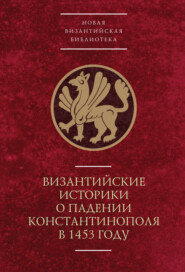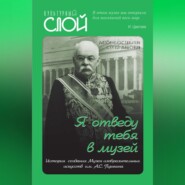По всем вопросам обращайтесь на: info@litportal.ru
(©) 2003-2024.
✖
Tales from the German, Comprising specimens from the most celebrated authors
Настройки чтения
Размер шрифта
Высота строк
Поля
Leaving the arbour hastily, he clapped his hands to summon a slave; but none appearing, he hurried to the house. Ali and Gulhyndi were now in the utmost despair.
"Come, my beloved," she said, as she embraced Ali, "only through the heart of his daughter shall his sword find its way to yours."
"That would not be a very strong shield," cried a hoarse voice, from the wall; "come, master, save your life, and own the fidelity of your servant."
Ali cast his eyes upwards and saw Lockman sitting astride on the wall, with a rope ladder which he quickly lowered. He embraced his beloved, and availed himself of this mode of rescue, which came as if sent by Heaven. He was soon on the other side of the wall with Lockman, who, with singular speed, took him round the corner and concealed him in a thick hedge. As soon as night came on he hastened home, attended by Lockman, and thanked him for his marked fidelity and his intrepid courage.
The first thing he now did was to speak to his father and confide his secret to him. He said, at length, "As you love your son, conquer your hatred against Hussain, go with me to him, solicit the hand of his daughter for me, and offer your hand to him in reconciliation."
"Is this possible, my son?" said Ibrahim. "Can love so far carry you away that it makes you forget what you owe to your father? You ask of me to degrade myself for the sake of your passion?"
"Is it degrading to reconcile oneself with one's enemy?" asked Ali.
"I did once make a step towards a reconciliation," replied Ibrahim, "which was contemptuously spurned, and I have sworn by the Omnipotent Allah that as sure as the gold cloth was torn, so surely shall Hussain be for ever torn from my heart. Compose yourself, my son, conquer your passion; there are pretty girls enough in Bagdad besides her. I am rich and can buy the most beautiful slaves for you; but never think of an alliance with the blood of Hussain; it would be an union against nature, and the day of your union would be the day of your father's death."
All the entreaties and persuasions of Ali were of no avail with his father; the otherwise mild Ibrahim was incensed against his son to a degree that had never been known before, and, turning his back upon him, he said, "Be silent and forget your folly if you do not wish, me to curse the moment in which your mother brought you into the world. He who loves Hussain's daughter cannot love me, and I must look upon him as an enemy who intends evil against me."
Ali was now left alone in despair. Soon, however, Lockman made his appearance, and asked him, "Why are you so dejected?"
"Fate will deprive me of my earthly bliss," replied Ali.
"When did fate ever do so?" rejoined Lockman, "that must have happened in a moment when I was not present."
"Begone," cried Ali, "am I not unhappy enough without your mockery aggravating my grief?"
"I come not only with mockery," said Lockman, "but sometimes with rope ladders."
"Pardon me," said Ali, "grief made me forget your kindness."
"Well," replied Lockman, "I forgive every thing but awkwardness."
"And what remedy is there for me?"
"Nothing easier than to find the remedy for you, provided you will make use of it."
Ali looked at him amazed.
"Have you then forgotten the caliph entirely? His favour, and what he told you at the time?" asked Lockman.
A ray of hope now darted through Ali's desponding mind.
"Go to the caliph," continued Lockman, "confess all to him; he will be amused, nay, rejoiced, for it will flatter him to find that you have been at last caught in the net of love. You have before now found favour in his sight; he will laugh at your love intrigue and give his orders; one word from him will be the foundation of your happiness."
Ali was delighted, but his joy shortly left him after a closer examination of Lockman's advice. He thought of the wrath of Hussain, his vindictive disposition, and said to himself: "If I am to go I must go at once, to-morrow it will be too late; he is spiteful, he is cadi, and has the power to put his evil designs into execution."
"Then go this very evening," said Lockman.
Ali wrapt himself in his cloak and went. The evening was already advanced, but the weather was fine and the moon shone. When he arrived at the palace he saw that it was splendidly lighted up, and he heard music. "Ah," he said, with anxious heart, "the caliph is celebrating a festival to-night; there is no hope of my being admitted, and to-morrow it will be too late."
His fears were confirmed by the words of the porters, who told him that the caliph would speak to no one so late, and that he must return the next day. One of them, however, said: "What can this stranger have to say to the caliph? Why is he wrapt up in a large cloak, and why does he come at this hour of the night? Confusion is in his face. Might he not be a traitor who intends to murder the caliph in a private interview? I think it will be most advisable to bring him to the cadi that he may guard him for the night in his house. To-morrow he can be released again if found innocent."
Several of the others agreed to this proposal, saying: "It is not the first time that such an attempt has been made against the caliph's life. The caliph is too noble-minded to have any suspicion; but it is the duty of his servants to watch over his safety."
The terror of Ali may easily be conceived when one of the guard laid hands on him to conduct him to Hussain. In his alarm he threw back his cloak, and cried: "I am Ali the son of Ibrahim! the caliph knows me and has shown me distinguished favour. I have to communicate things of importance, and you will incur his highest displeasure if you treat a peaceful citizen like a base vagabond."
Fortunately for Ali one of the guard knew him; and persuaded the others to release him, assuring him that it was impossible to speak to the caliph that night, and that he must return the following day.
Ali, in this state of uncertainty, walked a long time up and down the street. He had been denied an appeal to his only deliverer; he was unwilling to return to the house of his incensed father without having effected his purpose; and from the enraged cadi he had to fear the worst. Deeply distressed, he sat down on a bench on the banks of the Tigris.
He had not been there long before he perceived three old dervishes coming slowly up the street. They saluted him, but he scarcely noticed it. One of them came up to him and sat down next to him, whilst the others pursued their way.
"Let it not displease you, sir," said the old man, "that I address you without knowing you, – but if one has no acquaintance one must try to make some. We are dervishes, and are coming from Basra in order to speak to the caliph on matters of consequence. Unfortunately we arrived here too late. He celebrates a festival for a new slave whom he has received into his harem: and we were obliged to quit the palace without succeeding in our object. We had hoped to be allowed to sleep quietly in the outer court of the palace until to-morrow; but this hospitality is no longer permitted, as they fear the safety of the caliph might be endangered. We have already been walking about for more than an hour to find accommodation in an inn. I am the oldest, and am most weary, – permit me, therefore, to rest myself at your side; my companions will perhaps be more successful in their search."
"I regret," said Ali, "that this evening I am disposed to any thing rather than to entertaining people by my conversation. But if you will go to my father's house (telling him at the same time where he resided) he will receive you hospitably, and will feel pleasure in entertaining you during your stay in Bagdad. Come with me and I will show you the way. It is, moreover, not safe for us to loiter any longer about the streets, for the constables of the cadi have orders to arrest every one whom they meet after a certain hour."
"Why, we have nothing to fear from them to night," replied the dervish, "as they are making merry at the cadi's expense, in consequence of the great fortune which his daughter has met."
"What do you mean by that?" asked Ali.
"Why," replied he, "have you not heard that she has been given to the caliph, and that the festival is celebrated on her account? If the love she has kindled in the caliph, when he saw her for the first time, is of lasting duration, she may entertain the hope of becoming one of his most favourite wives."
"Impossible!" cried Ali.
"It is quite true," said the dervish.
"Then," exclaimed Ali, "I must speak to the caliph. He must restore her to me! I will strike down the guards if they offer to prevent my entrance. I will murder the caliph, and then her and myself – "
"Young man, you are mad! Would you murder the Commander of the Faithful? The mere utterance of such a design is high treason."
"I go," cried Ali, half frantic, "I can die with Gulhyndi, but not survive her dishonour and my own."
"What dishonour?" asked the dervish. "Can it be any thing but the highest honour for her to rest in the arms of Haroun al Raschid?"
"Heaven and earth!" said Ali, as he attempted to go.
"Wait an instant," said the old man, "and compose yourself. Is it possible," he continued, "that the same city can contain two men of such opposite temperaments? Love has changed you to a blood-thirsty tiger, and a youth named Ali is said to live here who is a pattern of such a cool nature, that his fame has reached us even at Basra."
"I am this very Ali!" cried the unfortunate youth.
"You Ali? Impossible! Ali is wise."
"The highest wisdom is love," said Ali; "but why do I tarry here, and waste my time upon you, while – ah? – "
He was going to tear himself away from the old man and hasten to the palace, but the dervish said, "As you are in such great haste, I will detain you only long enough to listen to one word of reason, if your agitated feelings will allow you. You have offered us a night's lodging without knowing us, and thereby laid us under some obligation, and as it is, moreover, the duty of men of our pious order to assist believers as far as we can, follow my advice and come with us, and we will bring you before the caliph. My companions are approaching and will go with us. Your purpose of striking down the guards is sheer madness, and you will repent it if you reflect a moment. In order to be admitted, we must say we come on important business from the governor of Basra. Once in the caliph's presence, we will, as ministers of religion and virtue, throw ourselves at his feet and solicit your betrothed from him. Perhaps we may move him, – perhaps he will be touched by your situation, and if he is not, then there is still time enough for you to act as despair prompts you." Ali thanked the good dervish for his offer. The other two were soon informed of the plan, and immediately assented to it as the best arrangement, though they had some difficulty in persuading Ali, who, notwithstanding the distracted state of his mind, perceived to what danger they exposed themselves on his account.
Arrived at the palace, they found but little difficulty in obtaining admittance; a few words to the guards procured them a ready entrance, and much respect was shown to the eldest. They were led through several apartments into a magnificent saloon, which was lighted with innumerable wax tapers. In the back ground stood the caliph's throne, and a great number of young girls afforded amusement by music and dancing. Ali, however, could discern neither the caliph nor Gulhyndi; and turning to the old dervish, with his face quite pale, he asked, "Where are they?"
"The caliph has probably retired to his own apartment with his young bride," replied he. "Alas! poor Ali, we have come too late."
"Come, my beloved," she said, as she embraced Ali, "only through the heart of his daughter shall his sword find its way to yours."
"That would not be a very strong shield," cried a hoarse voice, from the wall; "come, master, save your life, and own the fidelity of your servant."
Ali cast his eyes upwards and saw Lockman sitting astride on the wall, with a rope ladder which he quickly lowered. He embraced his beloved, and availed himself of this mode of rescue, which came as if sent by Heaven. He was soon on the other side of the wall with Lockman, who, with singular speed, took him round the corner and concealed him in a thick hedge. As soon as night came on he hastened home, attended by Lockman, and thanked him for his marked fidelity and his intrepid courage.
The first thing he now did was to speak to his father and confide his secret to him. He said, at length, "As you love your son, conquer your hatred against Hussain, go with me to him, solicit the hand of his daughter for me, and offer your hand to him in reconciliation."
"Is this possible, my son?" said Ibrahim. "Can love so far carry you away that it makes you forget what you owe to your father? You ask of me to degrade myself for the sake of your passion?"
"Is it degrading to reconcile oneself with one's enemy?" asked Ali.
"I did once make a step towards a reconciliation," replied Ibrahim, "which was contemptuously spurned, and I have sworn by the Omnipotent Allah that as sure as the gold cloth was torn, so surely shall Hussain be for ever torn from my heart. Compose yourself, my son, conquer your passion; there are pretty girls enough in Bagdad besides her. I am rich and can buy the most beautiful slaves for you; but never think of an alliance with the blood of Hussain; it would be an union against nature, and the day of your union would be the day of your father's death."
All the entreaties and persuasions of Ali were of no avail with his father; the otherwise mild Ibrahim was incensed against his son to a degree that had never been known before, and, turning his back upon him, he said, "Be silent and forget your folly if you do not wish, me to curse the moment in which your mother brought you into the world. He who loves Hussain's daughter cannot love me, and I must look upon him as an enemy who intends evil against me."
Ali was now left alone in despair. Soon, however, Lockman made his appearance, and asked him, "Why are you so dejected?"
"Fate will deprive me of my earthly bliss," replied Ali.
"When did fate ever do so?" rejoined Lockman, "that must have happened in a moment when I was not present."
"Begone," cried Ali, "am I not unhappy enough without your mockery aggravating my grief?"
"I come not only with mockery," said Lockman, "but sometimes with rope ladders."
"Pardon me," said Ali, "grief made me forget your kindness."
"Well," replied Lockman, "I forgive every thing but awkwardness."
"And what remedy is there for me?"
"Nothing easier than to find the remedy for you, provided you will make use of it."
Ali looked at him amazed.
"Have you then forgotten the caliph entirely? His favour, and what he told you at the time?" asked Lockman.
A ray of hope now darted through Ali's desponding mind.
"Go to the caliph," continued Lockman, "confess all to him; he will be amused, nay, rejoiced, for it will flatter him to find that you have been at last caught in the net of love. You have before now found favour in his sight; he will laugh at your love intrigue and give his orders; one word from him will be the foundation of your happiness."
Ali was delighted, but his joy shortly left him after a closer examination of Lockman's advice. He thought of the wrath of Hussain, his vindictive disposition, and said to himself: "If I am to go I must go at once, to-morrow it will be too late; he is spiteful, he is cadi, and has the power to put his evil designs into execution."
"Then go this very evening," said Lockman.
Ali wrapt himself in his cloak and went. The evening was already advanced, but the weather was fine and the moon shone. When he arrived at the palace he saw that it was splendidly lighted up, and he heard music. "Ah," he said, with anxious heart, "the caliph is celebrating a festival to-night; there is no hope of my being admitted, and to-morrow it will be too late."
His fears were confirmed by the words of the porters, who told him that the caliph would speak to no one so late, and that he must return the next day. One of them, however, said: "What can this stranger have to say to the caliph? Why is he wrapt up in a large cloak, and why does he come at this hour of the night? Confusion is in his face. Might he not be a traitor who intends to murder the caliph in a private interview? I think it will be most advisable to bring him to the cadi that he may guard him for the night in his house. To-morrow he can be released again if found innocent."
Several of the others agreed to this proposal, saying: "It is not the first time that such an attempt has been made against the caliph's life. The caliph is too noble-minded to have any suspicion; but it is the duty of his servants to watch over his safety."
The terror of Ali may easily be conceived when one of the guard laid hands on him to conduct him to Hussain. In his alarm he threw back his cloak, and cried: "I am Ali the son of Ibrahim! the caliph knows me and has shown me distinguished favour. I have to communicate things of importance, and you will incur his highest displeasure if you treat a peaceful citizen like a base vagabond."
Fortunately for Ali one of the guard knew him; and persuaded the others to release him, assuring him that it was impossible to speak to the caliph that night, and that he must return the following day.
Ali, in this state of uncertainty, walked a long time up and down the street. He had been denied an appeal to his only deliverer; he was unwilling to return to the house of his incensed father without having effected his purpose; and from the enraged cadi he had to fear the worst. Deeply distressed, he sat down on a bench on the banks of the Tigris.
He had not been there long before he perceived three old dervishes coming slowly up the street. They saluted him, but he scarcely noticed it. One of them came up to him and sat down next to him, whilst the others pursued their way.
"Let it not displease you, sir," said the old man, "that I address you without knowing you, – but if one has no acquaintance one must try to make some. We are dervishes, and are coming from Basra in order to speak to the caliph on matters of consequence. Unfortunately we arrived here too late. He celebrates a festival for a new slave whom he has received into his harem: and we were obliged to quit the palace without succeeding in our object. We had hoped to be allowed to sleep quietly in the outer court of the palace until to-morrow; but this hospitality is no longer permitted, as they fear the safety of the caliph might be endangered. We have already been walking about for more than an hour to find accommodation in an inn. I am the oldest, and am most weary, – permit me, therefore, to rest myself at your side; my companions will perhaps be more successful in their search."
"I regret," said Ali, "that this evening I am disposed to any thing rather than to entertaining people by my conversation. But if you will go to my father's house (telling him at the same time where he resided) he will receive you hospitably, and will feel pleasure in entertaining you during your stay in Bagdad. Come with me and I will show you the way. It is, moreover, not safe for us to loiter any longer about the streets, for the constables of the cadi have orders to arrest every one whom they meet after a certain hour."
"Why, we have nothing to fear from them to night," replied the dervish, "as they are making merry at the cadi's expense, in consequence of the great fortune which his daughter has met."
"What do you mean by that?" asked Ali.
"Why," replied he, "have you not heard that she has been given to the caliph, and that the festival is celebrated on her account? If the love she has kindled in the caliph, when he saw her for the first time, is of lasting duration, she may entertain the hope of becoming one of his most favourite wives."
"Impossible!" cried Ali.
"It is quite true," said the dervish.
"Then," exclaimed Ali, "I must speak to the caliph. He must restore her to me! I will strike down the guards if they offer to prevent my entrance. I will murder the caliph, and then her and myself – "
"Young man, you are mad! Would you murder the Commander of the Faithful? The mere utterance of such a design is high treason."
"I go," cried Ali, half frantic, "I can die with Gulhyndi, but not survive her dishonour and my own."
"What dishonour?" asked the dervish. "Can it be any thing but the highest honour for her to rest in the arms of Haroun al Raschid?"
"Heaven and earth!" said Ali, as he attempted to go.
"Wait an instant," said the old man, "and compose yourself. Is it possible," he continued, "that the same city can contain two men of such opposite temperaments? Love has changed you to a blood-thirsty tiger, and a youth named Ali is said to live here who is a pattern of such a cool nature, that his fame has reached us even at Basra."
"I am this very Ali!" cried the unfortunate youth.
"You Ali? Impossible! Ali is wise."
"The highest wisdom is love," said Ali; "but why do I tarry here, and waste my time upon you, while – ah? – "
He was going to tear himself away from the old man and hasten to the palace, but the dervish said, "As you are in such great haste, I will detain you only long enough to listen to one word of reason, if your agitated feelings will allow you. You have offered us a night's lodging without knowing us, and thereby laid us under some obligation, and as it is, moreover, the duty of men of our pious order to assist believers as far as we can, follow my advice and come with us, and we will bring you before the caliph. My companions are approaching and will go with us. Your purpose of striking down the guards is sheer madness, and you will repent it if you reflect a moment. In order to be admitted, we must say we come on important business from the governor of Basra. Once in the caliph's presence, we will, as ministers of religion and virtue, throw ourselves at his feet and solicit your betrothed from him. Perhaps we may move him, – perhaps he will be touched by your situation, and if he is not, then there is still time enough for you to act as despair prompts you." Ali thanked the good dervish for his offer. The other two were soon informed of the plan, and immediately assented to it as the best arrangement, though they had some difficulty in persuading Ali, who, notwithstanding the distracted state of his mind, perceived to what danger they exposed themselves on his account.
Arrived at the palace, they found but little difficulty in obtaining admittance; a few words to the guards procured them a ready entrance, and much respect was shown to the eldest. They were led through several apartments into a magnificent saloon, which was lighted with innumerable wax tapers. In the back ground stood the caliph's throne, and a great number of young girls afforded amusement by music and dancing. Ali, however, could discern neither the caliph nor Gulhyndi; and turning to the old dervish, with his face quite pale, he asked, "Where are they?"
"The caliph has probably retired to his own apartment with his young bride," replied he. "Alas! poor Ali, we have come too late."

















